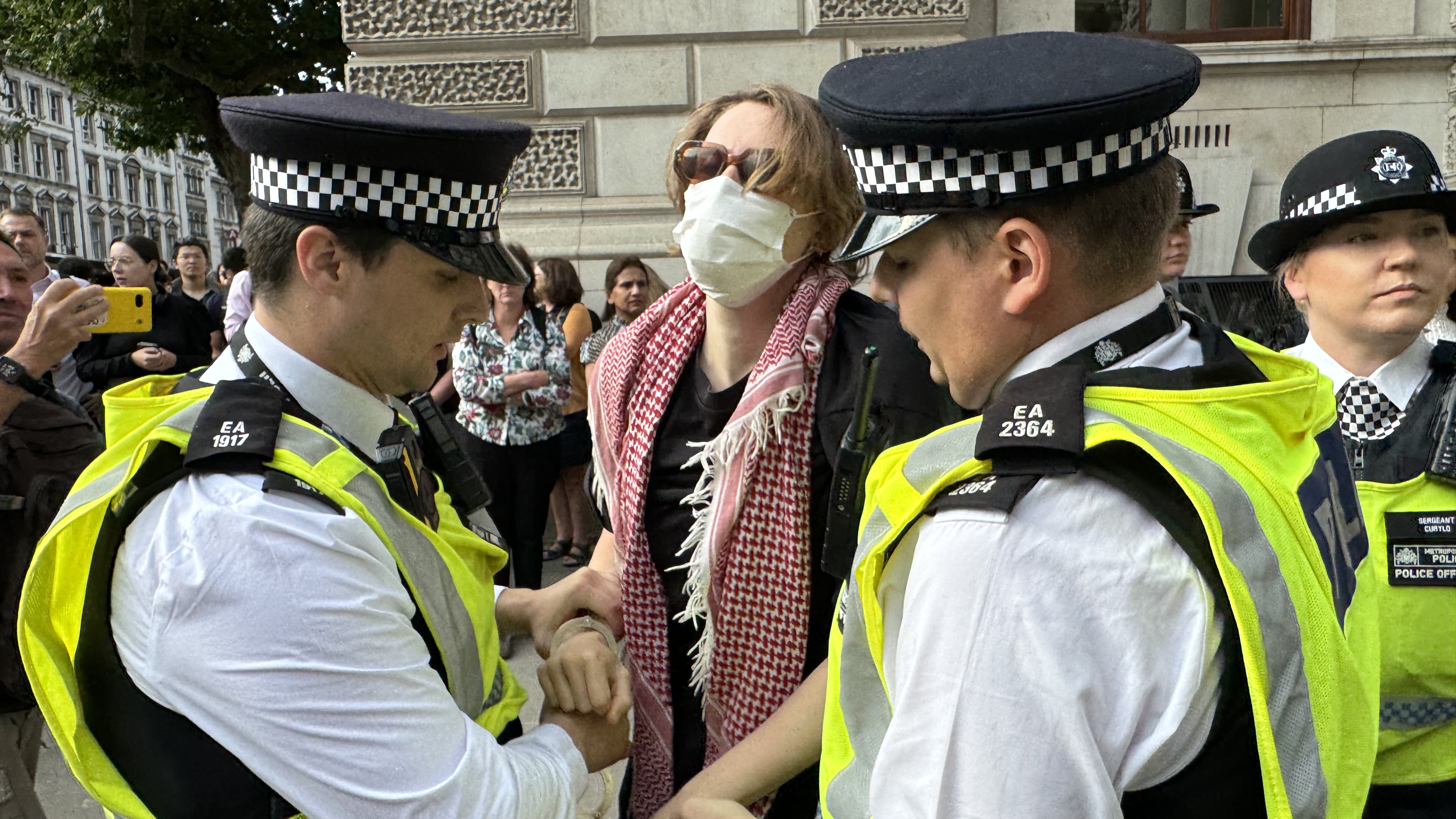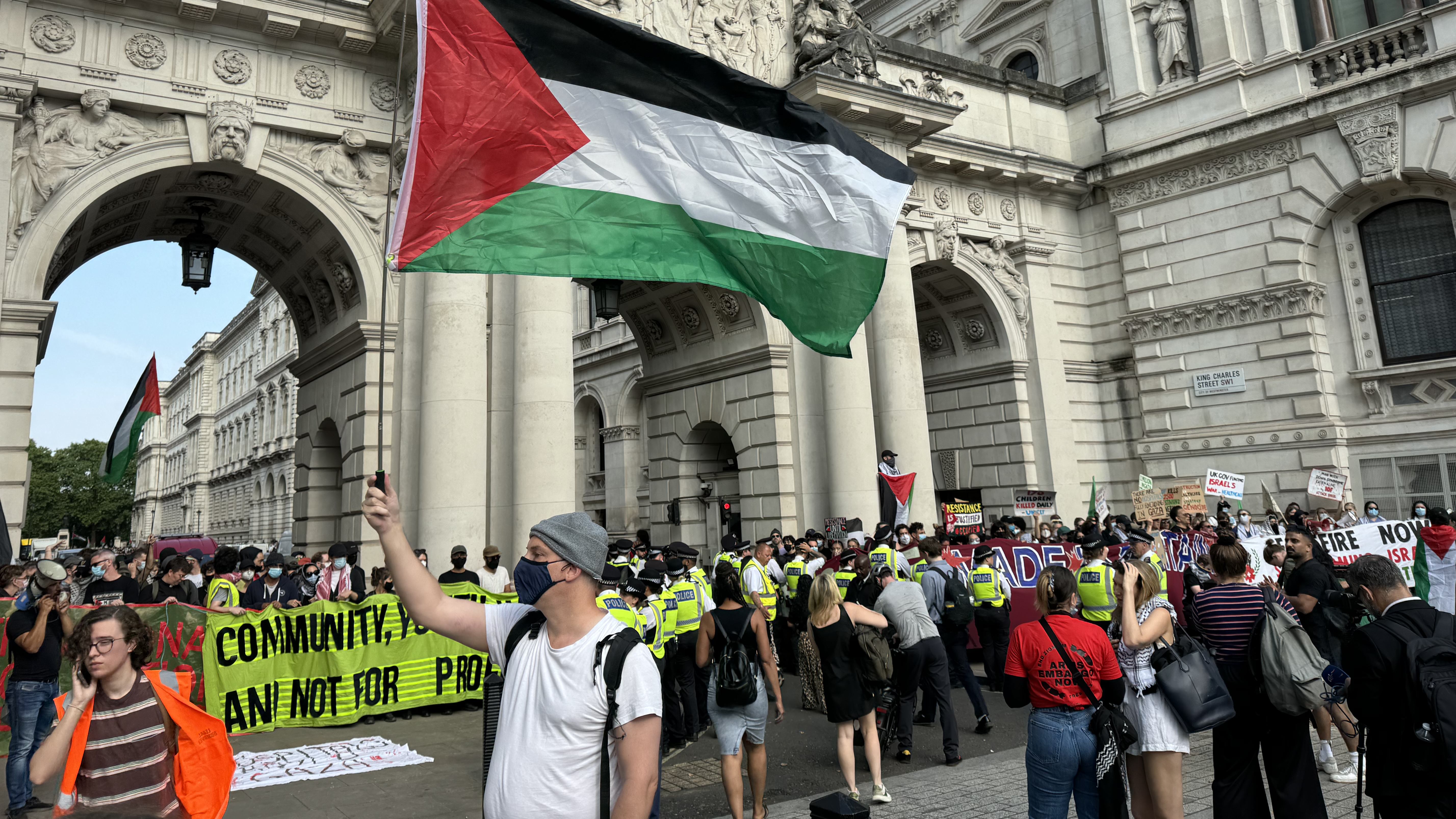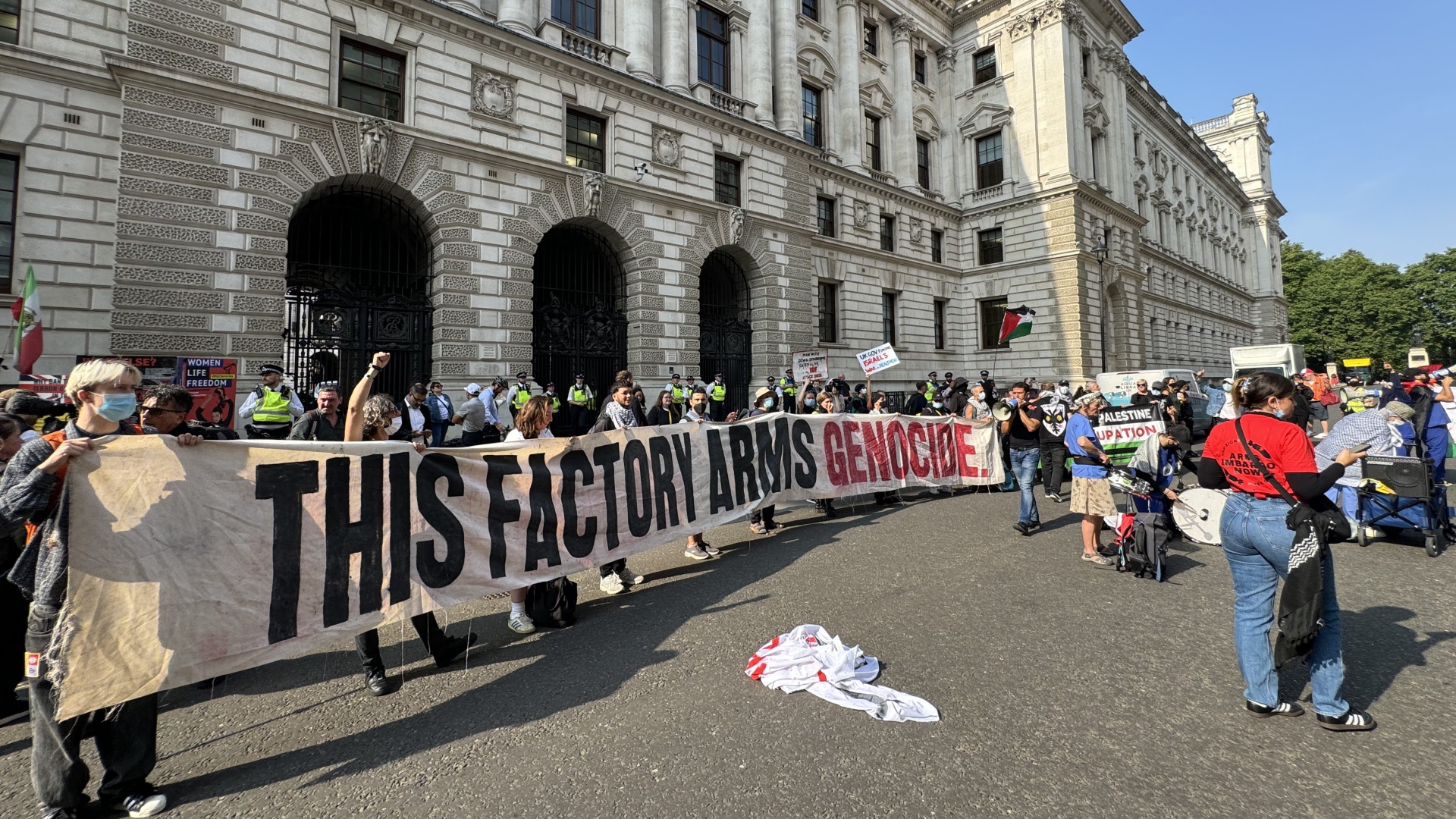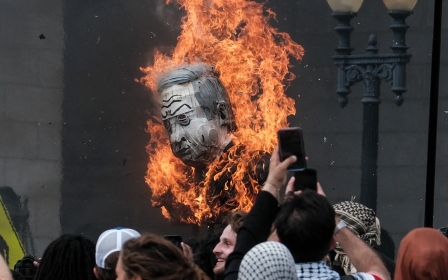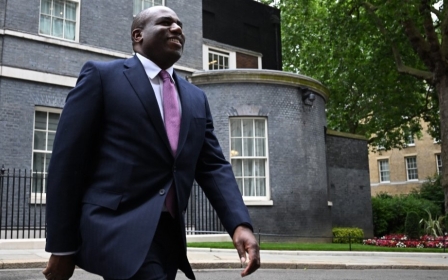Pro-Palestine protesters block foreign office with 'Genocide Made in Britain' banner
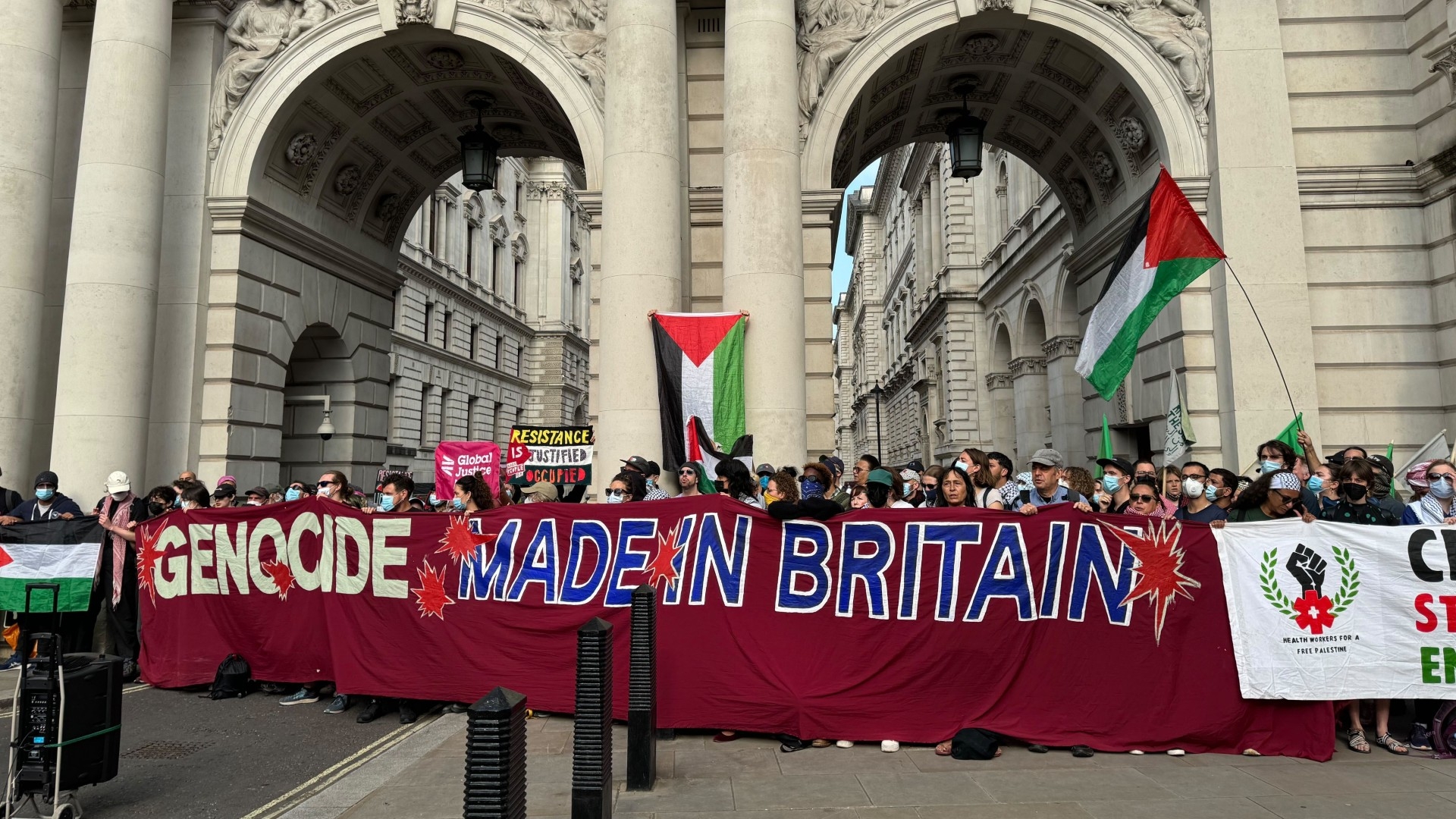
Hundreds of pro-Palestinian protesters blockaded the entrances to the Foreign Office building on Wednesday, demanding that the new Labour government change its policy towards Israel's war on Gaza.
Demonstrators, four rows deep and holding a banner reading "Genocide Made in Britain", sealed off the office's main entrance. At least nine demonstrators were arrested, protesters told Middle East Eye.
The protest, organised by Workers for a Free Palestine, is one of the largest since Labour's victory in the general election, which saw the party lose five seats to pro-Palestinian independent candidates.
Protesters highlighted the election results, saying the public had voted for a sweeping change in the government's policies towards Israel.
"This Labour government was not voted in because it is popular, but because the Tories collapsed," said Nihal, a researcher with Workers for a Free Palestine.
New MEE newsletter: Jerusalem Dispatch
Sign up to get the latest insights and analysis on Israel-Palestine, alongside Turkey Unpacked and other MEE newsletters
"The public is extremely for this case. They understand the links between British workers here and what is happening in Palestine now."
Chief among the protesters' demands was an end to UK arms exports to Israel and the release of legal advice, produced by FCDO officials, assessing Israel's committment and compliance with international humanitarian law.
Moe, a Church of England priest holding a banner, said the demonstrators aimed to stop all work in the building for the day to prevent any arms contracts from moving forward.
She expressed disappointment that they could not prevent civil servants from entering the building but was glad they were forced to witness the protest.
"People within the civil service need to act from within to stop these arms contracts," she said.
Before the election, then-shadow foreign secretary David Lammy called on the government to release the advice, saying that if it showed a clear risk that UK-made weapons could be used to commit serious violations by Israel in Gaza, exports should be halted.
Now serving as foreign secretary, Lammy told MPs last week that he requested a comprehensive review of Israel's compliance with international humanitarian law on his first day in office.
When asked whether he would make the advice public, Lammy said: "I hope to be able to make my views known with full accountability and transparency."
He also said that given the attacks by the Houthis, Hezbollah and Hamas on Israel, it would "not be right to have a blanket ban between our countries" and suggested he was specifically looking at offensive weapons Israel could use in Gaza as part of the review he had ordered.
Nihal cited a YouGov survey in May that found 56 percent of the British public supported an arms embargo, and called on Lammy to move forward with a ban and also release the advice.
"By sitting on this information, there have been more and more deaths every day," she said.
Nihal believes that protest activity by British workers has played a key role in ending UK complicity in the war so far, pointing to dock workers who have refused to load weapons onto ships and tech workers who have refused to manufacture technology used in Palestine.
Nihal said her organisation has also supported employees in the Department for Business and Trade (DBT) who have reportedly threatened to stop working over continued arms sales to Israel.
"If the government is not going to impose an arms embargo from above, we are going to do it from below," she said.
Middle East Eye delivers independent and unrivalled coverage and analysis of the Middle East, North Africa and beyond. To learn more about republishing this content and the associated fees, please fill out this form. More about MEE can be found here.


